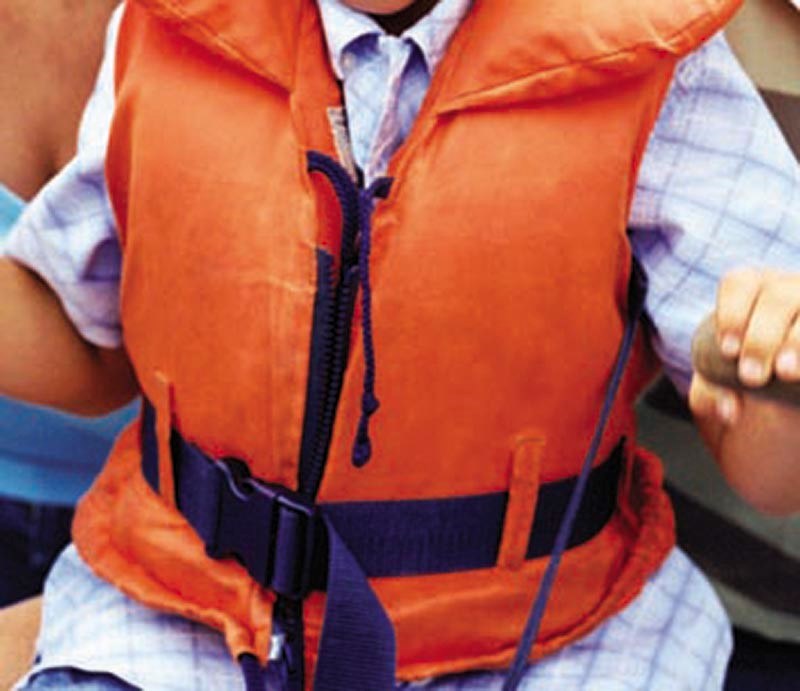Sarah Jones
Whether you’re a dedicated weekend boater or a casual Sunday kayaker, there’s enough summer left to take your safety seriously when out on the water.
Ken Marion is local boater with 30 years of experience whose favourite spot is the St. Clair River.
“Unless the water gets rough, I really don’t use lifejackets. Everyone on the boat can swim. There’s no drinking on the boat,” said Marion.
When my family capsized in the Winnipeg Red River, it wasn’t because we were being irresponsible. My brother’s boat started taking on water from the motor end and before we could even think about diagnostics, we were in the river. We were each wearing a Kapok, keyhole lifejacket; the boat had them in case of emergency – that should tell you how old it was.
“It’s something that you need to be wearing so that you can react to the other, more important, things,” said my mom, Sandra Leverton Jones, when I asked her to recall the capsizing.
Anyone who has gone to sit under the Blue Water Bridge this summer knows it can get crowded on the water. Mike Brown, a Canadian Coast Guard inshore rescue officer, saw a boat collision earlier this summer in which the unsuspecting boaters ended up in the water.
He sees a lot of people who stow their lifejackets in the bow of the boat.
“That can be a problem because when you need to use a lifejacket, you need it quickly,” said Brown.
A single search-and-rescue mission can cost taxpayers thousands of dollars, he added. It’s a grim business and tragically preventable.
I’m a strong swimmer and so is my mom, which is why we were able to help pull my brother’s young children to safety. But according to Brown, if people aren’t wearing PFDs they can drown quickly because of cold-water shock.
“Your instinct when you’re immersed in cold water unexpectedly is to gasp, and you’re just taking water into your lungs,” he said.
There are a lot of boating accidents that don’t involve going into the water. But Brown likes to focus on prevention.
“If you’re knocked unconscious then your chances of survival in the water are slim to none,” he said.
When I hear that I think about how lucky I am that my tipping boat hit me in the shoulder while tossing me out, and didn’t crack me on the head. And I think about how those dusty lifejackets changed everything that day, helped us find the surface and stay buoyant enough to swim away from the sinking boat.
Sarah Jones is a Sarnia-raised freelance writer and a Ryerson Journalism graduate.
